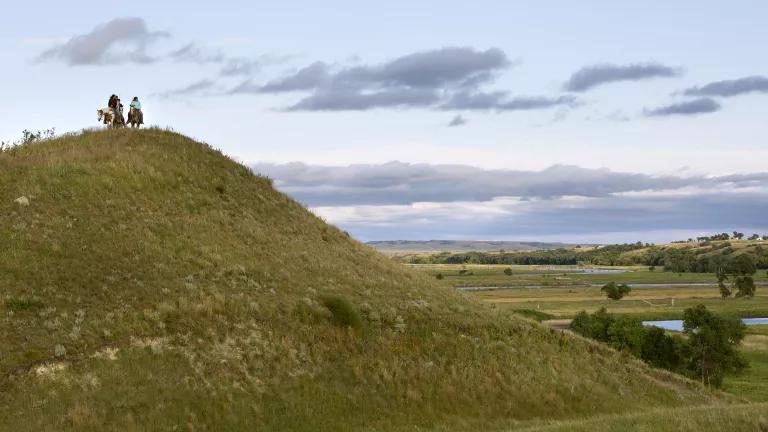New York Denies Water Quality Certification to NESE Pipeline

New York State just denied water quality certification to the Northeast Supply Enhancement Project, a pipeline that would involve the installation of approximately 17.4 miles of 26-inch diameter natural gas pipeline within New York State waters. In explaining its denial, New York stated that the pipeline’s water quality certification application was incomplete, preventing New York from making an informed determination. This is one step toward victory in permanently blocking the pipeline—without water quality certification, the natural gas pipeline cannot go forward within the state. But the fight is just beginning.
The Northeast Supply Enhancement Project
The Northeast Supply Enhancement Project is an expansion of the Transcontinental Gas Pipeline, a natural gas pipeline that carries gas from the Gulf coast of Texas, Louisiana, Mississippi, and Alabama, through Georgia, South Carolina, North Carolina, Virginia, Maryland, and Pennsylvania to deliver gas to the New Jersey and New York City area. This expansion of the pipeline would be constructed entirely underwater from New Jersey through Staten Island and Queens, and would connect to the existing Rockaway Delivery Lateral natural gas pipeline in Queens, traveling through the ecologically important Raritan Bay.
New York State’s Denial
Under Section 401 of the Clean Water Act, FERC cannot approve a natural gas pipeline until states the pipeline runs through issue a water quality certification for the pipeline. If a state denies water quality certification to a pipeline, it cannot be built within that state’s borders.
This is pretty much what happened with the Northeast Supply Enhancement Project on Friday, April 20. Importantly though, New York State denied the pipeline’s application for procedural, and not water quality, reasons. In other words, New York has not yet determined what the actual water quality impacts of the pipeline will be. By denying the application “without prejudice,” Transco, the pipeline company, can now submit a more robust application with more information to restart the process. We are nearly certain that they will do this.
Legal Background
This denial is a change in course for New York State. In the past, if New York felt an application was incomplete, they would either wait to receive the information or e-mail the applicants to get the information they were seeking. But a recent decision from the Second Circuit Court of Appeals (New York State Department of Environmental Conservation v. FERC) found that states only have one year from the date the 401 application is submitted to either grant or deny certification. In other words, once an application is submitted, complete or not, a 1-year countdown clock starts—if the state doesn't act before the year is up, they waive their right to block the pipeline altogether. To make sure the state doesn't waive it's right to deny the application, states must now deny an application whenever they determine the application is incomplete in order to restart the 1-year clock. Here, Transco submitted the water quality certification application to New York on June 30, 2017, meaning that the Department was required to act on the application by June 29, 2018 to avoid waiver.
Why This Is Important
We were not surprised by New York’s recent denial, as it was clear that the Northeast Supply Enhancement Project’s application lacked key information, such as a final environmental impact statement. New York’s denial letter is significant, however, because it contains language that hints to New York’s evaluation of the pipeline’s expected water quality impacts so far:
Based on the Department's initial review of the available information regarding the Raritan Bay Loop portion of the Project, the construction of the Project could have significant water quality impacts in New York State.
This is a signal that once the application is complete and resubmitted, New York may deny certification for the pipeline, finding that the pipeline will not meet state water quality standards. This would block the pipeline for good—and that is great news.
For now, New York is declining to rule on the merits. But it looks like we could be celebrating a true denial later on.
Speak Up
Want to speak up against the pipeline?
There are some opportunities to speak out against the Northeast Supply Enhancement Project to FERC, the federal agency responsible for coordinating the pipeline’s environmental impact statement, and for ultimately granting or denying a certificate of public convenience and necessity, another critical certification required for the pipeline to move forward:

We plan on attending the Brooklyn meeting on April 26, so if you show up, please say hello!
There will also be opportunities to speak with New York State regarding the water quality certification—stay tuned!




